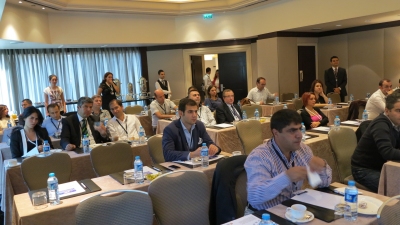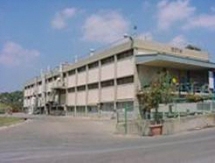Erez Buganim, Sub and Deputy CEO of Synel in an article for Calcalist about the employee performance evaluation.
If there is anything in common with managers and their employees, it is their dislike of the annual Performance Management process which usually involves filling out forms that rate performance and an assessment call. This annual process, which has recently ended in millions of companies worldwide including Israel, is one of the more unpopular in the business sector. Many managers and employees feel that it is frightening and alienating and does not reliably identify the pros and cons of professional and unprofessional disadvantages and may determine their advancement in the organization. Managers feel this when they evaluate their employees and when their managers review their performance and determine their ‘sentencing’. Millennials who are not enthusiastic about the corporate world in the first place see the assessment process as an affirmation of the shortcomings of the business world that strives to quantify and rank everything including human behaviors and thus determine the future of each employee’s career.
An employee evaluation process evaluates performance against the set goals, gives a result and ranks employees according to grades and in many cases includes dismissal of employees who have reached the bottom of the scale especially if they did not meet their goals. It is therefore a ‘competitive assessment’ and implicitly assumes that managers are adding value to the organization while employees are interchangeable. This concept which has dominated and been implemented in the business sector for over twenty years sees a worker as a kind of ‘production machine’ that needs to provide an output at a certain rate otherwise it is defined as ‘broken’ and damages the entire production line.
In recent years criticism against this notion has increased and not only because of its unpopularity among employees and managers. Human resource experts at consulting firms and large companies have recognized that an annual evaluation call based on the completion of quantitative performance forms contributes nothing to the organization’s goals, growth, employee capabilities, motivation, identification with the organization and its desire to contribute to its success. Often the annual feedback call raises concerns, alienation and lack of identification and even a desire to move to another workplace.
Against this background, an alternative approach has been developed in recent years called ‘Continuous Performance Management’ which seeks to leverage the evaluation process to generate significant value to the organization and its employees. This is done through continuous appraisal conversations, even daily between managers and employees. This view sees employees as the core asset of the organization that must be nurtured, mentored, enhanced and harnessed to grow their talents. Within these framework employees and their managers strive together through a quality dialogue to achieve defined goals of the organization with the manager’s job being to equip the employees with the best resources so that they can make their mark and contribute to it. Instead of giving an annual feedback and evaluation call they need to give employees continuous feedback daily, weekly, monthly and on performance to provide needed guidance and ongoing guidance so that employees have a real impact on achieving the organization’s goals. Today more flexible and immediate training methods are more common than in the past such as videos, webinars, podcasts and even games that combine rich information in an easy and fun way. Another important product of the process is the promotion of employees and the opening of long-term career opportunities in the organization. This approach was proven true by a Gallup survey that revealed that 87 percent of Millennial employees think that professional development and career development opportunities are the most important elements for them in the workplace.
The success of the new concept will be evidenced by the fact that leading global companies have adopted it and many like Adobe, Microsoft and General Electric have completely given up on the annual valuation calls. According to a Deloitte study 79 percent of organizations set a high priority on redesigning the assessment processes providing frequent real-time feedback to employees and many diverse pieces of training.
As is well known Israel lags in the employee productivity index compared to the OECD countries. There are many reasons for this, the vast majority of which are not controlled by commercial companies. At the same time in the area of improving employee skills, advanced training and adapting academic knowledge to the needs of the business environment commercial firms can be the arrowhead of a revolution that may affect productivity levels in the economy. The basis for this is among other things advanced human capital management, skills acquisition and development through advanced performance appraisal management. The significant benefits of the ‘continuous performance appraisal’ concept for organizations and companies require the Israeli economy to quickly adopt this new concept that has only so far been implemented by several global companies operating in Israel.
Israel is adopting new global perspectives three to five years late but on this issue, whose impact on the performance of the economy and commercial companies is at its greatest. Extensive national effort must be made, updating the perceptions of customary employee estimates and benefits in the coming years. Collaboration between companies, trade unions and government agencies may accelerate the process for the benefit of everyone. The business sector, in particular the high-tech sector which has previously demonstrated the ability to change rapidly due to changes in the global market can and should be the leading factor in this critical process.
The writer is a substitute and deputy CEO of Synel MLL PayWay who provides integrated hardware management software solutions for employee management in the organization
Watch the video: Erez Buganim’s lecture to the Ministry of Construction and Housing
 +44 208 900 9991
+44 208 900 9991 +01 480-374-7770
+01 480-374-7770




